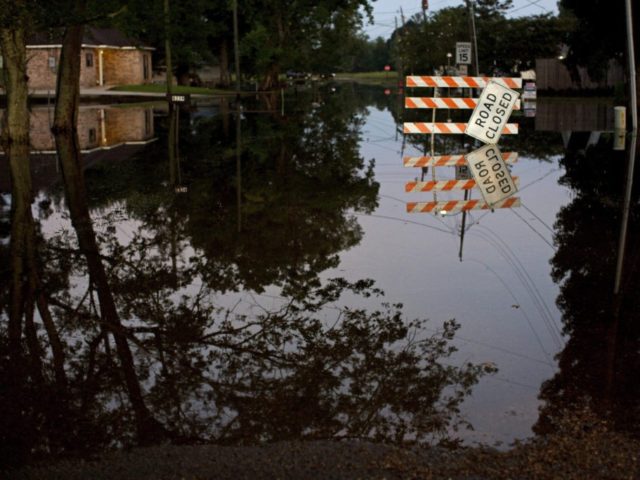American public health experts are warning that the Zika epidemic first identified in Latin America in February and now affecting Florida may expand throughout the Gulf states and pose a challenge to health officials for at least the next year.
Anthony Fauci, the head of the National Institute of Allergy and Infectious Diseases, told ABC’s This Week on Sunday that he expects Texas and Louisiana to join Florida in the list of U.S. states recording locally-acquired cases of Zika. Last week, Texas recorded its first Zika case confirmed to have been acquired in Florida. Multiple states, notably New Jersey and California in addition to those previously mentioned, have recorded numerous cases of Zika, though all have been acquired outside the continental United States.
“I would not be surprised if we see cases in Texas and Louisiana, particularly now where you have the situation with flooding in Louisiana,” Fauci told ABC. “There are going to be a lot of problems getting rid of standing water.”
“When you have a sub-tropical, or semi-tropical region with the right mosquitoes, and individuals who have travel-related cases that are in the environment, it would not be surprising that we will see additional cases, not only in Florida, but perhaps in other of the Gulf Coast states,” he added.
“This is something that could hang around for a year or two,” he added, citing American efforts to eradicate the Dengue virus. Zika is primarily spread through the bite of the aedes aegypti mosquito, which is also known to carry Dengue, Chikungunya, and the yellow fever virus. It is also sexually transmittable.
The Zika virus does not cause symptoms in an estimated 80 percent of those contaminated. In those that it does affect, patients report mild symptoms like muscle aches, rashes, and conjunctivitis. Zika’s true danger lies in its damaging effects on unborn children. The Zika virus targets an unborn child’s brain, with scientists concluding a definitive link between Zika and microcephaly, a condition in which a child’s skull does not grow large enough to contain its brain, crushing the brain and often killing the child or leaving them severely handicapped.
Miami has become the epicenter for the U.S. mainland’s Zika problem, with over 3o documented cases of Zika contracted through mosquito bites occurring in the city or neighboring Miami Beach. As Miami schools begin classes this week, officials are concerned that schools could become hotbeds for infection. Local news reports that Miami Beach Senior High School is handing out free insect repellant and urging students to be cautious about leaving still water around, which breeds mosquitos. Miami Beach Mayor Philip Levine is demanding the state and federal government provide more resources to fight Zika, as Miami Beach’s unique geography makes it a more isolated location for residents stuck in the Zika-positive zone.
Meanwhile, medical experts are hoping to find individuals willing to be infected with Zika deliberately, as part of experiments to develop a Zika vaccine. “We’re looking at these human challenge protocols not only as an important step in vaccine development but as a means to learn more about Zika,” Dr. Anna Durbin of Johns Hopkins Bloomberg School of Public Health tells the Miami Herald, noting, “We can look at things that you just can’t do in someone who’s naturally infected.” Developing a vaccine will be key to halting the spread of Zika as the Northern Hemisphere heads into autumn and spring returns to South America, threatening a new wave of Zika contagion in places like Brazil and Colombia.
Officials throughout the world are also preparing for a potential increase in the number of cases as the Summer Olympics in Rio de Janeiro conclude. Rio de Janeiro has been one of the most severely affected cities in Latin America’s Zika epidemic, and officials are making sure to monitor athletes who return from Brazil for any signs of having contracted the virus. The Washington Post cites the U.S. Centers for Disease Control (CDC) as stating, however, that they are concerned for only four countries that sent athletes to the Games: Chad, Djibouti, Eritrea and Yemen.
At least one athlete has been confirmed to test positive for Zika: Kemar Bailey-Cole of Jamaica, who tested positive for the virus before the Games but trained to run track anyway. Bailey-Cole left Rio de Janeiro with a gold medal for the 4x100m men’s relay.
Health experts not tied to the official government, however, have been warning for months that hosting the Olympics in a city with an active epidemic underway puts millions of children at risk.

COMMENTS
Please let us know if you're having issues with commenting.